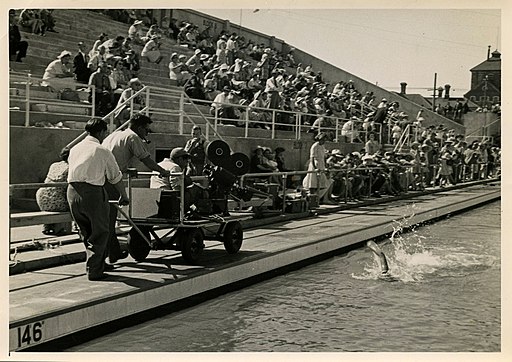As you may know, we at The Inclusion Post are West-midlands based, and big fans of diversity and inclusion. So, hearing that this year the Commonwealth Games are being held in Birmingham and that the Birmingham 2022 Organising Committee promises to showcase its vibrant cultural heritage through diversity and inclusivity…definitely has us excited!
Let’s find out, how exactly the Commonwealth games are becoming champions of inclusion.
A Brief History
The Commonwealth Games began in 1930, known then as the British Empire Games. And are contested by member countries of the Commonwealth. The games were initially created to celebrate the coronation of King George V. Pivoting since then to focus on the unification of athletes regardless of their cultural background, disability, gender, or socio-economic status through fair play and the promotion of friendship. There are currently 56 independent countries in the Commonwealth of Nations. However, the games allow several dependent territories who do not compete independently at the Olympics, participate with their own flags.
The first games had 11 countries and around 400 athletes in attendance. It has since increased immensely to over 6,600 athletes from across 72 nations and territories globally. Host countries are chosen by the Commonwealth Games Federation through bids. The decision is then made based on different factors including availability of sporting venues i.e. stadiums and the host’s ability to provide appropriate accommodation and facilities for the athletes.
Although the games have run every four years since 1930 (except for 1942 and 1946). The hosts have been consistent in addressing the Sustainability, Inclusivity and Creativity pillars. This year the Birmingham 2022 Organising Committee intends to carry on the tradition by creating their own legacy.
 British Empire Games 1950
Image credit: Archives New Zealand from New Zealand, CC BY-SA 2.0
British Empire Games 1950
Image credit: Archives New Zealand from New Zealand, CC BY-SA 2.0 How diversity and inclusion is translated into the games
Diversity and inclusion have become core pillars of The Games over the years. Each year, the host countries create their own commitments towards these pillars and create strategies for achieving them. In 2002, at the Commonwealth Games in Manchester, para-athletes became fully integrated into their teams. Making it the first fully inclusive international multi-sport Games. Today it is compulsory to have athletes for certain para-sport categories including Aquatics (Swimming Para), Athletics, Lawn Bowls and Powerlifting.
During the 2018 Gold Coast Games, a non-discrimination clause was signed by creating the opportunity for an equal number of men’s and women’s medal events. The 2018 Games also ensured that at least 50% of the international federations’ technical officials overseeing sports such as Basketball, Hockey and Swimming were women making it the most gender-equal multi-sports event ever. The Birmingham 2022 Committee is addressing inclusivity through accessibility this year.
Birmingham is not new to the concept of diversity
As of 2020, Birmingham became the most ethnically diverse city in the UK. With only 57.9% of the population being white according to the 2011 census. The rest of the population consists of African, Caribbean and Asian ethnicities. The cultural diversity of the community paved the way for the signing of the Race at Work Charter in 2021 which provides support for employees from ethnically diverse communities have the support they need. This year, there is also a lot of focus on supporting young people, disadvantaged groups, the unemployed and disabled people (especially those from ethnically diverse communities) around Birmingham. This won’t only benefit the Games, but will also help create a qualified, experienced talent pool for the region.
Through these actions and other targeted initiatives like the employment of appointment of a senior executive for race, management of data collected in different ethnic groups, the Birmingham 2022 planning committee hopes to create policies which would make this year’s games more inclusive and enhance the overall diversity of the city. The idea is to create a system for the people, by the people.

Are the strategies really being implemented or is it just for show?
Several concerned community leaders and creatives claim that the city is sidestepping established Black and Asian creative businesses. In a recent interview Birmingham 2022’s Chief Creative officer Martin Green claimed that there aren’t enough large ethnically-led creative organisations. – Despite there being several thriving businesses in the city.
On the inclusivity front, many of the countries that take part in the games still have very low gender equality scores according to a 2021 report carried out by the World Economic Forum. Although this stems from political and religious motivations. It is interesting to see that inclusivity (and equality) only resonate with their leaders during the Games and not afterwards.
The Commonwealth Games have been hosted by 19 cities in 9 countries (including England, Scotland and Wales separately.) None of which include any African countries or territories. Durban, South Africa bid on the 2022 Games, but were stripped of their rights to host. Not directly through discrimination but due to problems arising from financial constraints. However, avenues for support could have been created if there was more representation for (South) Africans on the executive board of the Commonwealth Games Federation.
Pro Progress
There has undoubtedly been a lot of progress in the past decade. It’s clear to see that the commonwealth games do a lot in the name of inclusion and diversity. however, it’s still not enough. So what else could be done?
Well, hopefully, the gender parity of the Games will spark a deeper look into equality. Not only across other sporting events but within all countries and territories of the commonwealth. It could also help if the Commonwealth games itself, implement new policies or entry requirements to support this. Ones that actively encourage leaders of participating countries to address issues of gender inequality in their countries. Not just within their competing team.
On the subject of gender, the equality for transgender athletes also needs to be addressed. With more trans athletes like Lia Thomas showing us what the reality is for trans people in the world of sports. We hope that in the years to come, the Commonwealth Games will include trans athletes as full members of competing teams.
Improving representation both in the arenas and organisations, will inspire the next generation. Whilst continuing the legacy of the games and further championing true diversity and inclusion, across the Commonwealth.

